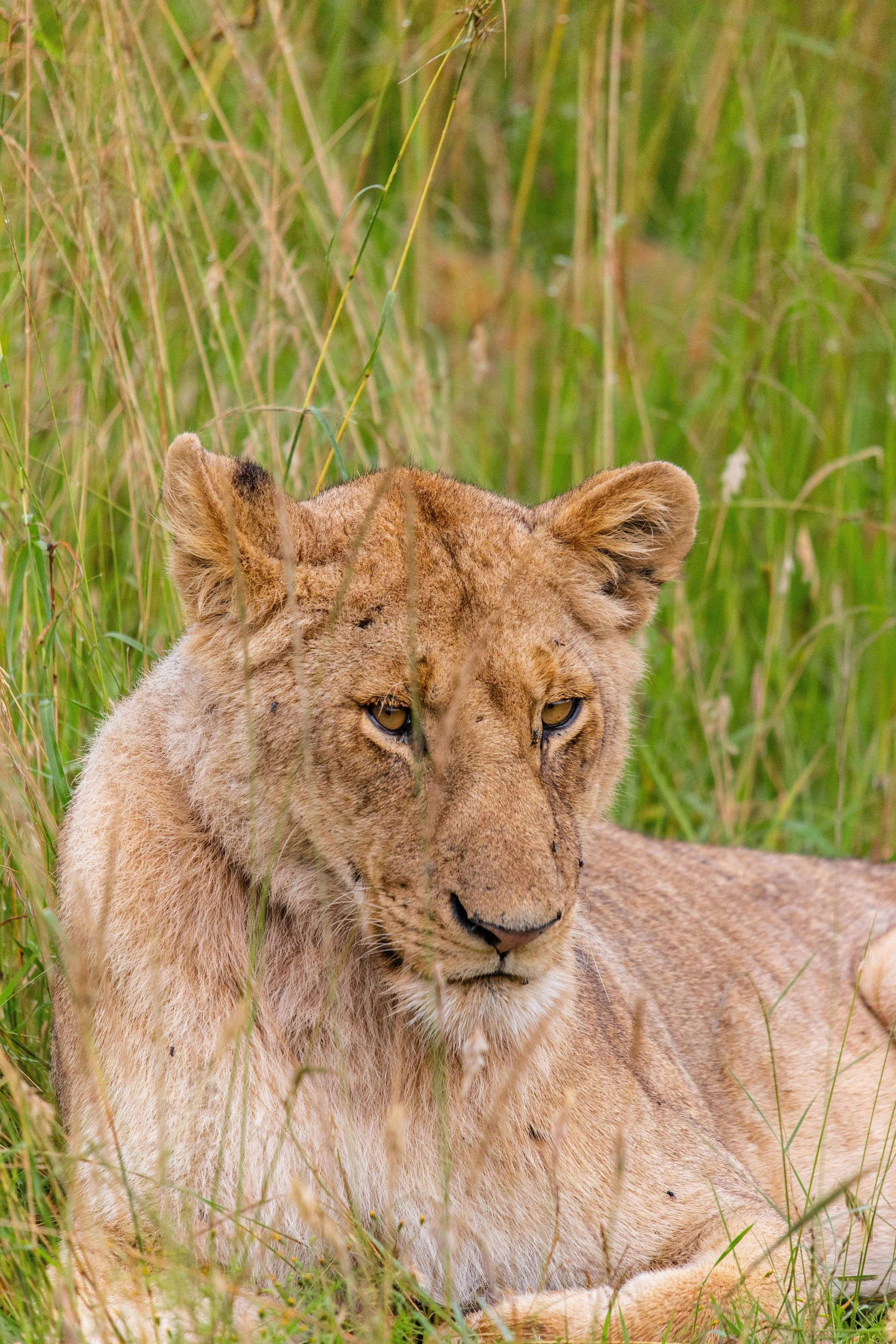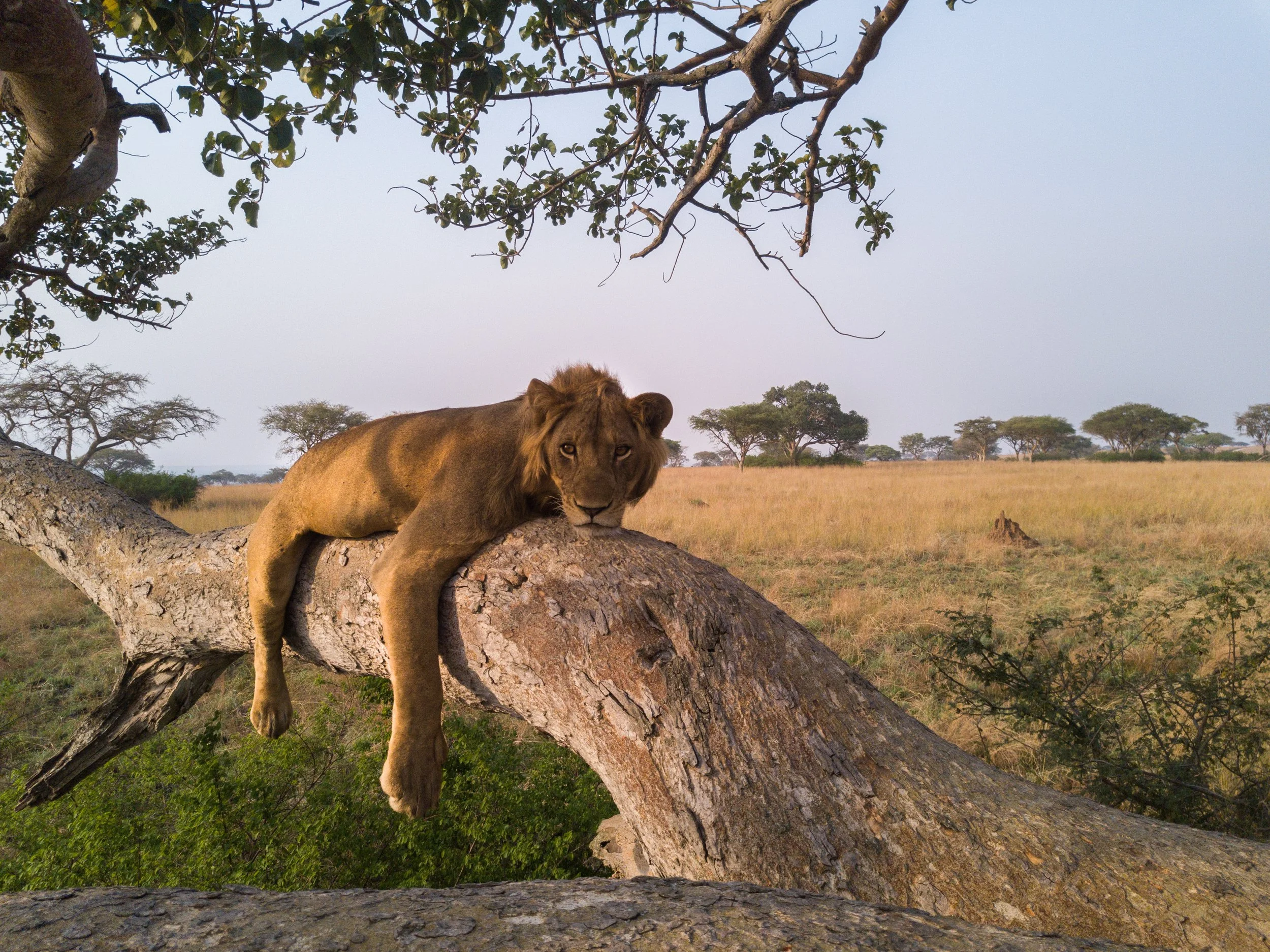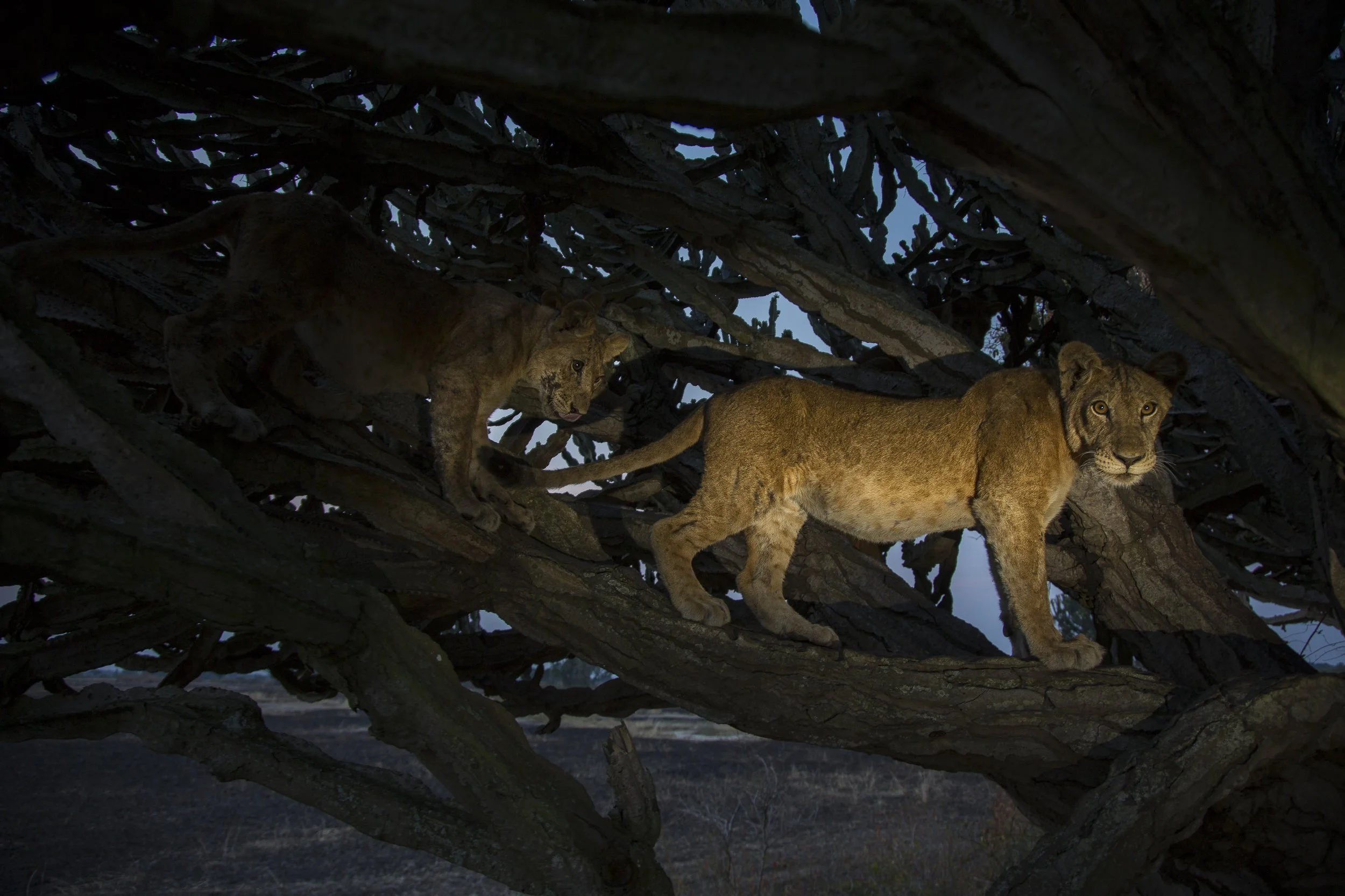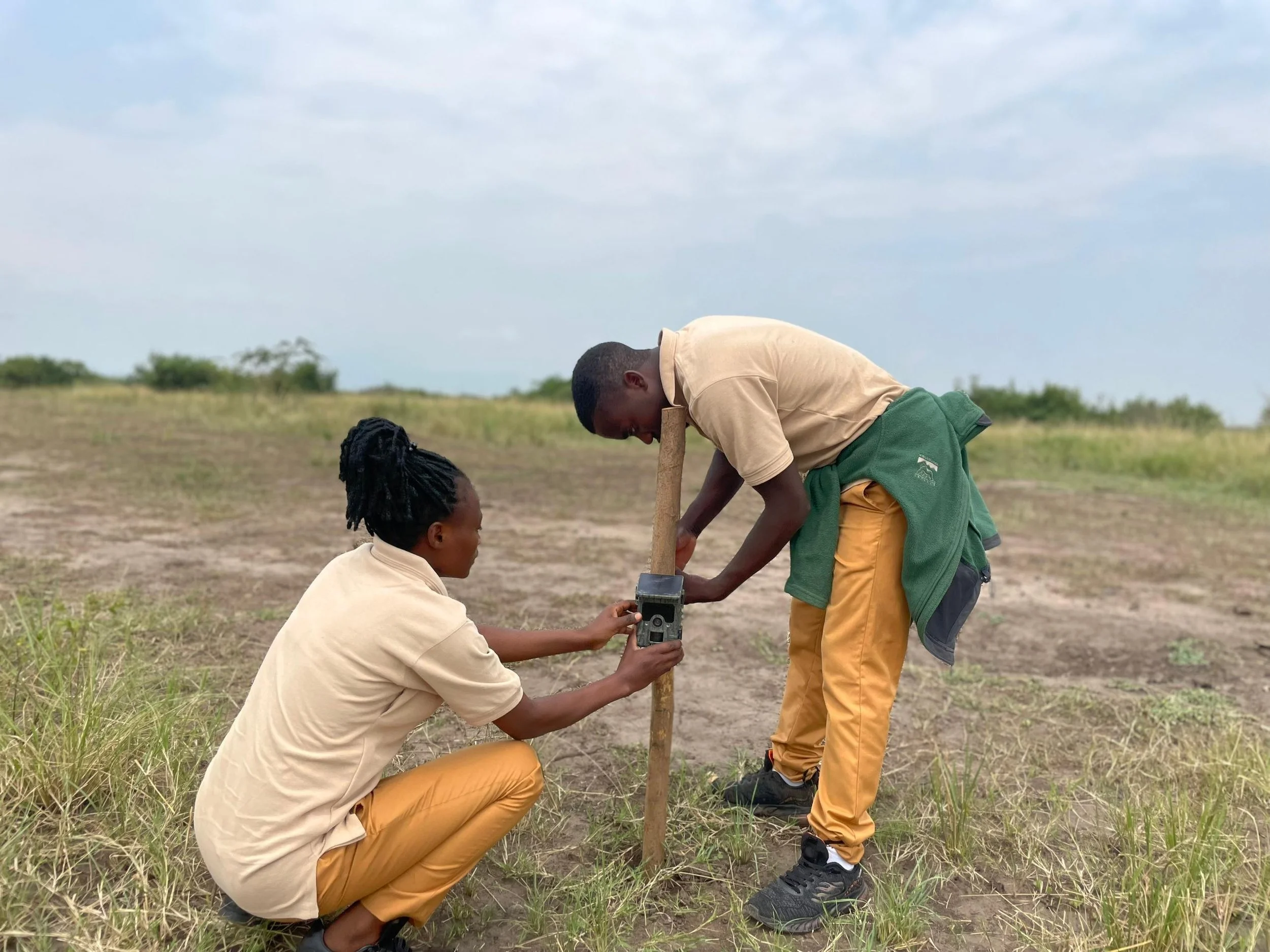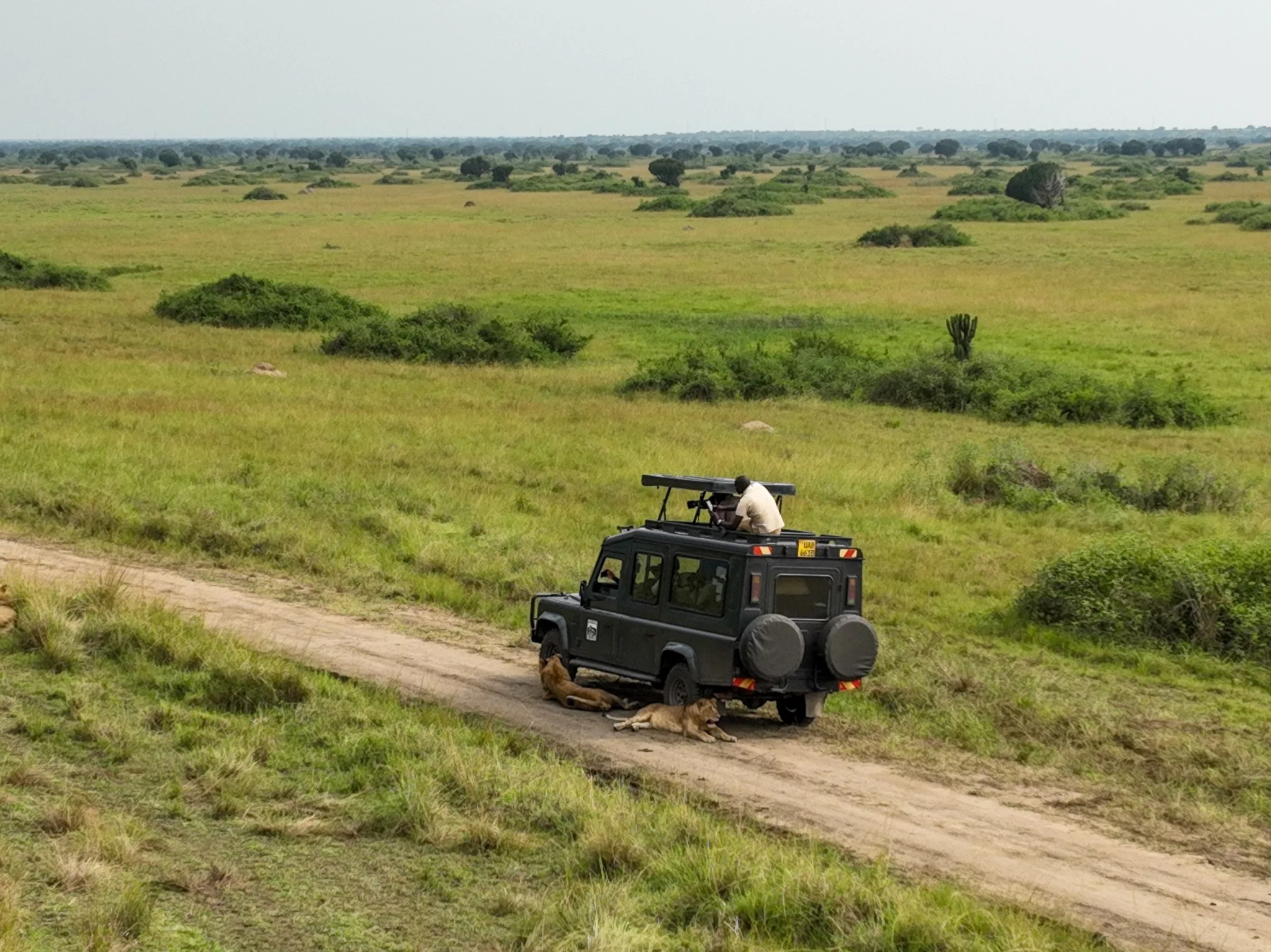KYAMBURA LION MONITORING PROJECT
VOLCANOES SAFARIS PARTNERSHIP TRUST
QUEEN ELIZABETH NATIONAL PARK, UGANDA
2025 GRANTEE | $15,000 | NOMINATED BY ADVENTURE LIFE
The lions in Queen Elizabeth National Park are unique. They are one of only 3 populations in Africa that have a culture of climbing trees. If the park loses the last 39 lions this unique behavior will also be lost and will not return even if new lions are reintroduced to the park. Kyambura Lion Monitoring Project conducts an annual large carnivore census and collects data for African lions, leopards and spotted hyenas using a network of vehicles and remote camera traps. The project aims to establish a science-based conservation program that supports the Uganda Wildlife Authority (UWA) in the scientific monitoring and protection of large carnivores, respond to injured animals and human/wildlife conflict incidents, helps to assess the impact of conservation work currently being done, and trains young Ugandans from the Kyambura community in scientific conservation techniques.
The Issue:
Over the past 40 years, the lion population in Queen Elizabeth Conservation Area (QECA) has plummeted by over 90%, dropping from over 400 lions in the 1980s to just 39 by 2022. Despite this alarming decline, accurate monitoring of carnivore populations in QECA was largely absent until 2018, with the Uganda Wildlife Authority (UWA) lacking the necessary knowledge and capacity for scientific surveys. Poaching, driven by both bushmeat hunting and retaliatory killings, remains a significant threat, with incidents like the poisoning of 13 lions in 2018 and the killing of 4 more in 2022. As the human population around QECA grows, human-wildlife conflict is expected to increase, further endangering the already vulnerable lion population, which also faces challenges from habitat loss, invasive species, and prey decline.
Grant Award Use:
Through this project VSPT wants to achieve a long term change for wildlife, with stable, healthy and thriving populations, and for people, with reduced human/wildlife conflict, and an increase in economic benefits to local communities from wildlife, conservation and ecotourism.
What Would a Successful Project Result In?
The ultimate goal of this project is to contribute to lion conservation and an increased, healthy and thriving lion population in Queen Elizabeth National Park by implementing an annual carnivore census, providing training, education and job opportunities to local youth and park rangers, protecting carnivores and people from human/wildlife conflict.
Voices From The Community:
“The Kyambura Lion Monitoring Project is honored to be named as a successful recipient of the 2025 Adventure Travel Conservation Fund grant. The grant will help us to continue building a carnivore conservation program and supporting the Ugandan Wildlife Authority in the monitoring and protecting the lion, leopard and hyena population of Queen Elizabeth National Park in Uganda. The grant will also increase the opportunities to provide education, training and field experience in conservation and scientific wildlife monitoring to UWA rangers and young local people from the nearby communities.
The grant will help us to continue building a carnivore conservation program and supporting the Ugandan Wildlife Authority in the monitoring and protecting the lion, leopard and hyena population of Queen Elizabeth National Park in Uganda. The grant will also increase the opportunities to provide education, training and field experience in conservation and scientific wildlife monitoring to UWA rangers and young local people from the nearby communities.”
Kevin James, Chief Operating Officer of Volcanoes Safaris
